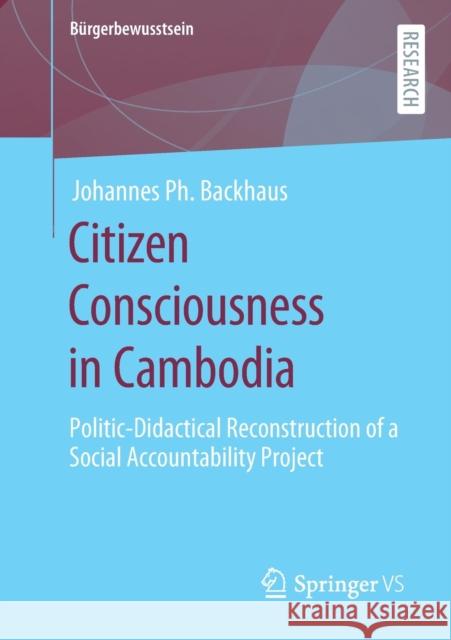Citizen Consciousness in Cambodia: Politic-Didactical Reconstruction of a Social Accountability Project » książka
topmenu
Citizen Consciousness in Cambodia: Politic-Didactical Reconstruction of a Social Accountability Project
ISBN-13: 9783658308780 / Angielski / Miękka / 2020 / 299 str.
Citizen Consciousness in Cambodia: Politic-Didactical Reconstruction of a Social Accountability Project
ISBN-13: 9783658308780 / Angielski / Miękka / 2020 / 299 str.
cena 201,24
(netto: 191,66 VAT: 5%)
Najniższa cena z 30 dni: 192,74
(netto: 191,66 VAT: 5%)
Najniższa cena z 30 dni: 192,74
Termin realizacji zamówienia:
ok. 16-18 dni roboczych.
ok. 16-18 dni roboczych.
Darmowa dostawa!
Kategorie BISAC:
Wydawca:
Springer vs
Seria wydawnicza:
Język:
Angielski
ISBN-13:
9783658308780
Rok wydania:
2020
Wydanie:
2020
Numer serii:
000832080
Ilość stron:
299
Waga:
0.38 kg
Wymiary:
21.01 x 14.81 x 1.73
Oprawa:
Miękka
Wolumenów:
01
Dodatkowe informacje:
Wydanie ilustrowane











